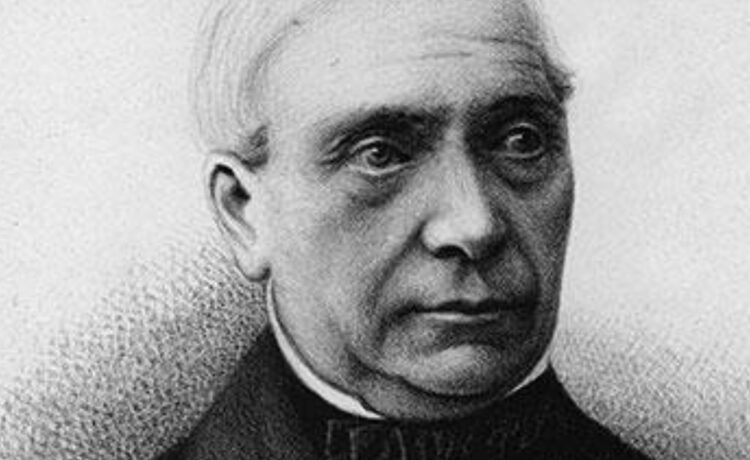Ferdinand Berthier stands as a monumental figure in the history of the deaf community. His life and work have left an indelible mark on deaf education, advocacy, and culture. Understanding Berthier’s contributions provides valuable insights into the development of deaf rights and the progress made over the centuries.
Early Life and Background
Ferdinand Berthier was born on September 28, 1803, in Loughans, France. Coming from a modest family, Berthier faced the challenges of deafness from a young age. Despite these challenges, his family supported his education and personal growth, recognizing his potential early on.
Education and Early Achievements
At the age of 8, Berthier enrolled at the Royal Institute for the Deaf in Paris, an institution that would become central to his life and work. Under the mentorship of renowned educator Abbé Sicard, Berthier excelled, quickly distinguishing himself as a bright and capable student.
Career as an Educator
Berthier’s passion for education led him to become a teacher at the Royal Institute for the Deaf. His innovative teaching methods and deep empathy for his students helped many deaf individuals achieve academic and personal success. Berthier believed in a holistic approach to education, integrating both intellectual and practical skills.
Advocacy and Leadership
Berthier was not just an educator; he was a tireless advocate for the deaf community. He played a crucial role in advocating for the rights of deaf individuals, fighting for their recognition and integration into society. His leadership extended to various influential positions, where he used his voice to effect change.
Literary Contributions
In addition to his teaching and advocacy, Berthier was a prolific writer. He authored several books and numerous articles, shedding light on the experiences and needs of the deaf community. His literary works not only educated the public but also provided a sense of identity and pride for deaf individuals.
Establishing Deaf Organizations
One of Berthier’s most significant achievements was founding the Society for the Deaf-Mute of Paris in 1838. This organisation aimed to support the deaf community through social, educational, and cultural activities. Under Berthier’s leadership, the Society became a beacon of hope and a hub for deaf culture in France.
International Influence
Berthier’s impact was not confined to France. He established connections with deaf leaders across Europe and the United States, fostering a global network of support and collaboration. His work inspired many and set the stage for international cooperation in the deaf community.
Challenges and Obstacles
Despite his many successes, Berthier faced numerous challenges. Societal prejudices and the limited understanding of deafness in the 19th century often posed significant obstacles. However, Berthier’s resilience and determination enabled him to overcome these barriers and continue his pioneering work.
Legacy and Honours
Berthier’s contributions were recognized during his lifetime and continue to be honored today. He received numerous awards and accolades, reflecting the widespread appreciation for his efforts. His legacy lives on, influencing modern deaf education and advocacy.
Berthier’s Personal Life
On a more personal note, Berthier’s life was marked by close relationships and a strong sense of community. He formed lasting friendships with both deaf and hearing individuals, enriching his life and work. Anecdotes from his life reveal a man of great kindness, humor, and dedication.
Berthier’s Philosophy on Deaf Culture
Berthier was a staunch advocate for the recognition and respect of deaf culture. He emphasized the importance of sign language and the unique cultural identity of the deaf community. His efforts helped pave the way for greater acceptance and understanding of deaf culture worldwide.
Comparisons with Contemporary Deaf Leaders
When compared to other leaders of his time, Berthier stands out for his multifaceted contributions. While many focused solely on education or advocacy, Berthier’s work encompassed both, along with significant literary and organizational achievements. His unique approach set him apart and magnified his impact.
Inspiring Future Generations
Ferdinand Berthier’s life continues to inspire new generations of deaf individuals and advocates. His achievements in education, advocacy, and cultural recognition serve as a powerful example of what can be accomplished despite adversity. Educational institutions and cultural organizations still draw from his work today.
Conclusion
Ferdinand Berthier’s life and work have left a lasting legacy in the deaf community. From his early days at the Royal Institute for the Deaf to his extensive advocacy and literary contributions, Berthier’s influence is undeniable. His efforts not only improved the lives of countless deaf individuals but also paved the way for future advancements in deaf education and rights.
FAQs
1. Who was Ferdinand Berthier?
Ans: Ferdinand Berthier was a pioneering French deaf educator, advocate, and writer who made significant contributions to the deaf community in the 19th century.
2. What were Berthier’s major contributions to the deaf community?
Ans: Berthier’s major contributions include his work as an educator, his advocacy for deaf rights, his literary works, and the establishment of the Society for the Deaf-Mute of Paris.
3. How did Berthier influence deaf education?
Ans: Berthier influenced deaf education through his innovative teaching methods and his holistic approach to learning, which emphasised both intellectual and practical skills.
4. What organizations did Berthier establish?
Ans: Berthier established the Society for the Deaf-Mute of Paris, an organization dedicated to supporting the deaf community through various social, educational, and cultural activities.
5. How is Berthier remembered today?
Ans: Berthier is remembered as a key figure in the history of the deaf community, with his contributions to education, advocacy, and cultural recognition continuing to inspire and influence to this day.













